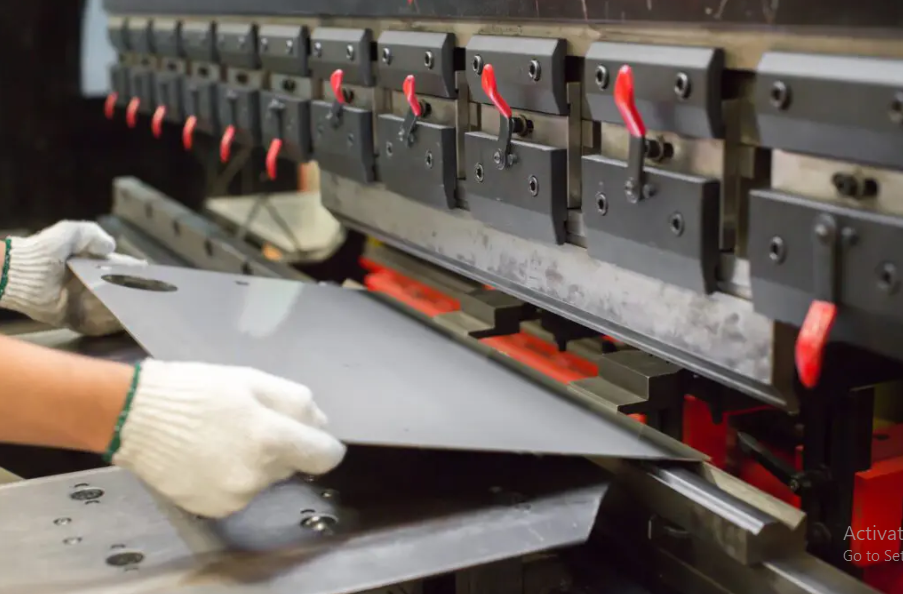Sheet metal fabricators are the unsung heroes of modern manufacturing. The skilled workers create, cut, and assemble the metal sheets from which many everyday products are derived. From your car’s sleek panels to your home’s sturdily made appliances, you see their handiwork daily. But what do metal fabricators actually do, and why are they so important? Let’s dig a little deeper into their role in modern manufacturing.
What is Sheet Metal Fabrication?
Sheet metal fabrication refers to the conversion of two-dimensional flat sheets of metals into useful parts or structures. This is achieved through cutting, bending, welding, and assembling the metals to a specific design.
Fabricators work on a variety of metals, including steel, aluminum, and copper, depending on the particular project that a fabricator is working on. Their job isn’t just about getting the work done physically; it also calls for precision, creativity, and technical know-how.
The Tools of the Trade
Sheet metal fabricators use different tools and machines to execute their work. Some of the most common include:
- Cutting Tools: Cutting tools such as laser cutters, plasma cutters, and shears are used to slice through metal sheets in a precise manner.
- Bending Machines: Machines like press brakes bend the metal in a specific angle and shape according to the design.
- Welding Tools: Welding is used to join two metal pieces. Different welding techniques, such as MIG or TIG welding, are used by fabricators according to the job.
- Finishing Tools: Sanders and grinders give the product a finer finish by smoothing out rough edges.
With these tools, blank sheets of metal cab become small components, large structures, or anything in between.
Why Are Sheet Metal Fabricators Important?
Sheet metal fabricators are essential to many industries. Without them, many of the things we take for granted wouldn’t exist because:
They Support Many Industries
Fabricators create metal parts for industries like construction, automotive, aerospace, and electronics. They produce everything from building frameworks to the casing of your laptop.
They Enable Customization
Want something one-of-a-kind or a prototype? Fabricators can create customized metal pieces to fit a need, which is an innovation.
They Make Tough Products
Fabricators ensure that their metal products are strong, durable, and safe. They carefully work to get excellent results.
How Fabrication Works
Sheet metal fabrication works in the following steps:
- Design: It’s a blueprint, or a computer-aided design file specifying how the finished product should be like and function.
- Cutting: Metal is being cut to exact size and dimensions with the assistance of lasers or shears.
- Bending: Machines bend this metal into form.
- Joining: Pieces that make up this final product would be welded together, riveted, or even bolted in place.
- Finishing: The product is smoothened, coated, or even treated with some protection and professional look.
Each process is precise and a great number of skills involved as a small mistake can ruin a project.
Challenges Faced by Fabricators
sheet metal fabricator’s life isn’t smooth—there are some challenges faced in the business.
- Tight Deadlines: Most manufacturing projects require short turnarounds time. This dawns pressure to fabricators of meeting their deadlines on the same.
- Complex Designs: Contemporary products have complex features, requiring greater precision and skills.
- Material Costs: Metal price fluctuations affect budgets and project planning.
Fabricators, however, do not let these issues get in the way of delivering excellent results with hard work and adaptability.
The Future of Sheet Metal Fabrication
As technology advances, so does the world of sheet metal fabrication. Here are some exciting trends to watch:
Automation and Robotics
Machines and robots are taking over repetitive tasks, making fabrication faster and more accurate.
Sustainable Practices
More workshops are orienting towards minimal waste, recyclable materials, and energy-friendly equipment to avoid harming the environment.
3D Metal Printing
This emerging technology allows fabricators to create complex shapes and prototypes more efficiently.
Smart Tools
Artificial intelligence is facilitating the improvement in designs, the reduction of errors, and the optimisation of processes for fabricators.
Fabricators as Artists
Although sheet metal fabrication is very technical, it is also an art. The fabricators need to see how flat sheets can transform into three-dimensional objects. Creativity in their minds results in producing a product that is functional yet aesthetically pleasing.
From architectural details to heavy machinery, fabricators blend craft and practicality to shape our world.
Conclusion
Sheet metal fabricators are an important part of modern manufacturing. Their work touches nearly every part of our lives, from the cars we drive to the buildings we live in. As technology advances and industries grow, their skills remain more important than ever.
Next time you see an attractive metal product or use reliable equipment, you should appreciate the expertise behind it. Sheet metal fabricators indeed make the world stronger, more innovative, and more functional.
